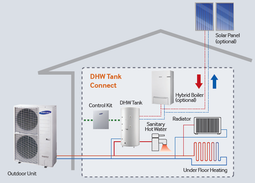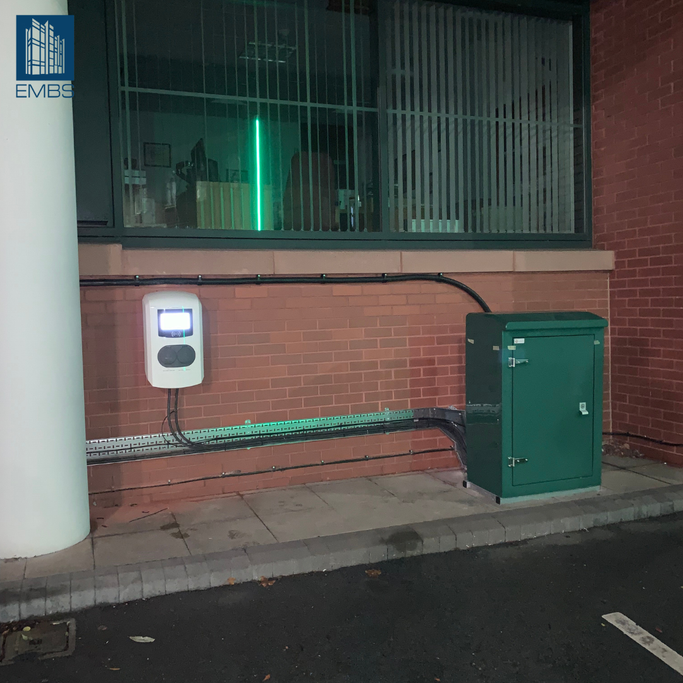EMBS - Climate Solutions



Get a free quote for your new Air-source Heat Pump
COP26
In November, the UK, together with our partners Italy, will host an event many believe to be the world’s best last chance to get runaway climate change under control.
COP26 is the 2021 United Nations climate change conference
For nearly three decades the UN has been bringing together almost every country on earth for global climate summits – called COPs – which stands for ‘Conference of the Parties’. In that time climate change has gone from being a fringe issue to a global priority.
This year will be the 26th annual summit – giving it the name COP26. With the UK as President, COP26 takes place in Glasgow.
In the run up to COP26 the UK is working with every nation to reach agreement on how to tackle climate change. World leaders will arrive in Scotland, alongside tens of thousands of negotiators, government representatives, businesses and citizens for twelve days of talks.
Not only is it a huge task but it is also not just yet another international summit. Most experts believe COP26 has a unique urgency.

To understand why, it’s necessary to look back to another COP.
The importance of the Paris Agreement
COP21 took place in Paris in 2015.
For the first time ever, something momentous happened: every country agreed to work together to limit global warming to well below 2 degrees and aim for 1.5 degrees, to adapt to the impacts of a changing climate and to make money available to deliver on these aims.
The Paris Agreement was born. The commitment to aim for 1.5 degrees is important because every fraction of a degree of warming will result in the loss of many more lives lost and livelihoods damaged.
Under the Paris Agreement, countries committed to bring forward national plans setting out how much they would reduce their emissions – known as Nationally Determined Contributions, or ‘NDCs’.
They agreed that every five years they would come back with an updated plan that would reflect their highest possible ambition at that time.
Glasgow is the moment for countries to update their plans
The run up to this year’s summit in Glasgow is the moment (delayed by a year due to the pandemic) when countries update their plans for reducing emissions.
But that’s not all. The commitments laid out in Paris did not come close to limiting global warming to 1.5 degrees, and the window for achieving this is closing.
The decade out to 2030 will be crucial.
So as momentous as Paris was, countries must go much further than they did even at that historic summit in order to keep the hope of holding temperature rises to 1.5 alive. COP26 needs to be decisive.

COY16
COY16 is the 16th United Nations Climate Change Conference of Youth.
Organised in collaboration with YOUNGO, The Official Youth Constituency of the United Nations Framework Convention on Climate Change (UNFCCC), it is one of the largest entirely youth-led global youth climate conferences in the world.
The conference takes place from 28-31 October 2021, days before the annual United Nations Climate Change Conference, also known as Conference of the Parties, in the same host country as the COP.
COY serves as a space for capacity building and policy training, in order to prepare young people for their participation at COP and their life as local and international Climate advocates.
The Conference is organized by 7 Working Groups and Coordinators in 152 Countries whose main objective is to gather local Youth Statements and raise the voices of the global youth to the United Nations decision making process.
(source: ukcop26.org)
EV Chargers
What power rating should I use for my home socket?
When it comes to home charging, 3-7 kW chargers are the most popular and are widely recommended for the UK market. Many UK households have a single-phase (AC) electricity supply and can support the additional 7 kW load. Some households, with three-phase (AC) supply can support a more powerful fast charger up to 22 kW. However, this is far more common in countries like Germany with a more robust electricity network.
Always check with the installer that your fuse board has enough spare capacity to support the additional load of a home charging station. If there is not enough spare capacity, then you may have to pay to upgrade your distribution board.
Rapid chargers offer you a much quicker charge, perfect for longer journeys, when a quicker charge is needed, but it's not advisable to only use rapid charging because this can increase the degradation of your battery over time.
How long does it take to charge an electric car?
How long it takes to charge an electric car is one of the most frequently asked questions. Whilst filling up with gasoline takes a few minutes, the time it takes to charge an EV from low to full is much longer. However, it can be more convenient. Typically electric cars are charged when the car's not in use, like overnight at home, in the same way you would a mobile phone, or during the day whilst you're working.
How much you charge, or need to charge, will also change - with gasoline, the majority of people drive their cars until the fuel gauge shows low on fuel and we fill the tank up to full again. This behaviour stems from the inconvenience of having to go to a petrol station. With electric cars and the convenience of charging at home, you may find you 'top up' the battery each day as it's used rather than waiting for it to get low - again similar to a mobile phone.
Another factor that may impact the number of times you need to charge your electric car or van is temperature. Lithium-ion batteries perform better in warm weather, so you might notice a slight drop in the range your EV can travel in the colder winter months.
In summary, how long it takes to charge an electric car depends on:
- Your car's battery size
- How many miles you do between charges
- Your charging behaviour, i.e. topping up often vs charging from low to full less often
- The power rating of the charger you're using - you can read more below on different types of chargers and their kWh ratings
EV battery technology is improving all the time, A team from Penn State University has just announced the creation of a battery that can charge up to 250 miles in just 10 minutes.
Did you know?
Electric vehicles often come with battery warranties based on the number of charging cycles (1 cycle is equal to 1 full charge and 1 full discharge), with many manufacturers offering anything from 60,000 to 100,000 miles on their battery warranties as standard.
Electric car charging points grant
The Electric Vehicle Homecharge Scheme (EVHS), contributes up to 75 per cent towards the cost of buying and installing an electric charger, up to a maximum of £350, if you have a home with off-street parking suitable for an electric car charger and an eligible electric vehicle.
Similarly the Workplace Charging Scheme (WCS), contributes up to 75 per cent to a maximum of £350 for each socket, for up to 40 charge points across all of the sites they operate.
(source: edfenergy.com)
Like what you see?
Work with us here
© Copyright. All rights reserved.
Electrical Mechanical Building Services Limited
website built by Margosas



